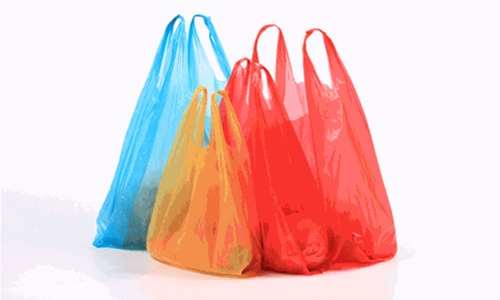Plastic ban ‘bold move’: UN
It was a miracle material when it first came to the world. Soon it outpaced every other known material and conquered continents in a jiffy. Thanks to its umpteen uses and low cost, Plastic, as we call it, is now ubiquitous, making it one of the greatest environmental challenges the world have to face. But alarm bells are ringing now for yet another reason. Researchers say eight million tonnes of plastic ends up in the sea each year.
Fish eat it and then we do it. Microplastics worked their way into the food chain. All this started in 1907 with Leo Baekeland, a graduate of Ghent University, inventing Bakelite, which later accidentally leading to the development of plastics. Now, more than 100 years after the breakthrough, the world is shocked seeing it on the dinner plates. Good news, however, is that governments all over the world are aware of its dangers and are taking actions.
Plastic packaging accounts for nearly half of all plastic waste generated globally, and much of it is thrown away within just a few minutes of its first use. Most of this waste is generated in Asia, while America, Japan and the European Union are the world’s largest producers of plastic packaging waste per capita. If current consumption patterns and waste management practices continue, then by 2050 there will be around 12 billion tonnes of plastic litter in landfills and the environment.
Bahrain’s ‘bold’ move
In Bahrain, things, however, are changing. “Bahrain has surprised many with its ban on plastic bags, which became effective in June 2019,” the United Nations Environment Programme reports. Bahrain, according to the UN agency, is steadily moving towards a full-fledged plan to reduce plastic waste that ends up in landfills or the environment.
The Supreme Council for the Environment together with the Ministry of Industry, Commerce and Tourism are working on policies and guidelines for manufacturers and suppliers to ensure a smooth transition to a suitable alternative. The effort is to expand recycling by increasing the total number of recycling bins in the Kingdom. Besides, the ministerial order became effective in June, also aims to ban the import of non-biodegradable bags.
The decision has been described as ‘bold’ by the UN Environment’s West Asia Office Director and Regional Representative Sami Dimassi. Bahrain’s decision, Dimassi said, made it the second country in West Asia to take a stand against non-biodegradable plastic bags after the Sultanate of Oman.
“Plastic in the ocean has a disproportionately large impact on marine life. Small pieces of plastic are eaten by fish, sea turtles and sea birds, often resulting in their death. This is in addition to the fact that often, these animals become entangled in plastic debris which leads to fatal injuries and consequently puts an end to their short-lived lives.”
Change attitude, perceptions
While the report hails the ban as a ‘great start’, it also reminds the need for the people here to change their attitudes and perceptions, citing the vulnerability of the Island nation to plastic waste. Decades-long inaction has pushed Bahrain’s rich marine habitat - Coral reefs, sea turtles, dugongs and numerous fish species - to near extinction.
With population growth and the increased production and consumption of plastic products and packaging, marine litter exacerbated the problem and contributed to the diminishing fish stocks.
Bahrain joins ‘Clean Seas’ campaign
It is at this critical juncture that Bahrain’s government seized the opportunity to join the UN Environment Programme’s global Clean Seas campaign. Since then, according to the UN, Bahrain’s youth networks, civil society, the government and others have spared no effort to turn the tide on plastic. The works that culminated in the ban started well before in the Kingdom with many stores substituting plastic bags with paper ones.
Local supermarkets and hypermarkets also jumped in supporting the campaign. UN reveals that LuLu and Carrefour management have both sought the advice of UN Environment’s West Asia Office during the transition. At least 15 branches of the two main hypermarkets here introduced reusable bags as part of their green policies.
The big hurdle
One major hurdle in the battle against plastics, the UN points out is the smaller corner shops and foodservice industry. Bahrain, however, with the Supreme Council for the Environment, is determined to win this battle with activists and youth here joining hands to raise awareness on its negative impacts.
The report showering praise on the ‘openness’ of Bahraini people to other cultures and interest in modern education also attributes it as the reason for the presence of “many green-thinking advocates” in the Kingdom.
“Empowered, entrepreneurial”
Describing Bahraini youth as “empowered and entrepreneurial”, the UN report says that Bahrain is rich with several youth-led green initiatives, thanks to the focus on organic and green cosmetics production and upcycled fashion.
The Kingdom, the UN reports confirms, is set to win this huge battle with the active participation of civil society, educational institutions lighting the path of children with environmentally friendly practices and information and a responsible private sector.
Related Posts

